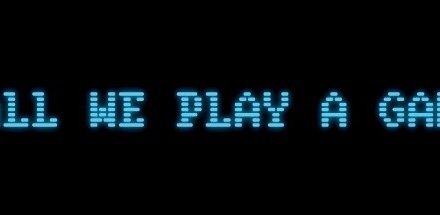When I think of times, people, jobs, and relationships of months and years gone by, I tend to classify everything in terms of “ex-” or “former-.” Though in many contexts they can mean the same thing, to me there is a subtle but important difference between the two terms, and so I try to be careful when using them.
When I say something is “ex-,” such as “so-and-so is an ex-employee,” I intend to communicate that the position/relationship/whatever is firmly in the past, and will not be repeated. An ex-employee is not going to be re-hired, an ex-friend won’t be welcomed back, an ex-athlete won’t compete again, and so forth. It denotes finality, that something is over and done with.
In contrast, when I say “former-” I mean to imply that there is a possibility of return or resurgence. I consider myself a “former swimmer” rather than an “ex-swimmer” because I can easily see myself hopping back in the pool for long hours of exercise. That door hasn’t closed. A “former employee” would be re-hirable, and maybe just left because of changing circumstances. A “former mechanic” maybe left the trade to try something else, but is perhaps willing, or would be at least welcome, to come back to the trade.
For me, having clear definitions is important. Events, people, situations, all are categorized and have to fit nicely in their little boxes. When I make a decision, whether it’s how I feel about someone or what activity I want to spend time on, my mind is fairly settled. I’m stubborn in that way, but it also means I’m very uncomfortable with ambiguity.
Having a friendship or relationship that I can’t clearly define sets me on edge, and I find myself not knowing how to act around that person, not knowing what is acceptable to say, do, or share. Often trying new things is difficult for me because I can’t clearly say “I am a person who does/enjoys X” right off the bat. Anyone who has gone out to dinner with me can attest that, while I may enjoy a wide variety of cuisines, at each place I have the one or two meals I stick with, not wanting to venture into new territory.
Earlier this year I left the acting troupe I had been a part of for over 15 years. Once or twice I’ve been asked if I would consider going back, and the answer has been a flat, emotionless “no.” Whatever other reasons and motivations I have for my choice, a not insignificant part is that I have put myself squarely in the “does not do X” box. I am an ex-member of that group, not a former member.
That kind of rigidity is difficult for (some) others to understand, and I absolutely see where they are coming from. While I admit its drawbacks and limitations, it also works as a defense mechanism, ensuring that I don’t spend time or energy wondering about “will I or won’t I?” in many cases. People, events, situations fit nicely in their boxes and I don’t have to worry about them.
What sets my anxiety to the roof is when something doesn’t quite fit, as so often is the case with other people. More often than not, that’s my own personal struggle.













